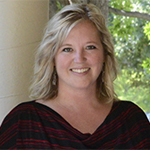Each year, Colorado State University celebrates the teaching, research and service achievements of CSU students, alumni and friends, academic faculty, administrative professionals and classified staff as part of the Celebrate! Colorado State Awards.
The 2019 event — emceed by CSU Leadership Council Assistant Vice President Kristi Bohlender and CSU General Counsel Jason Johnson — recognized more than 60 people from across the university.
“Every single person we honor today has made an impact that warranted the gratitude and respect of colleagues, students and peers,” said President Tony Frank via video during the ceremony. “Every person we honor today has been singled out for going above and beyond and raising the bar in terms of service and achievement.”
Edward Barbier
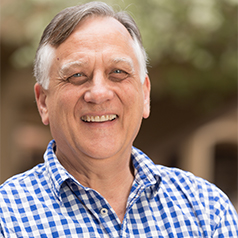 Edward Barbier, a renowned Colorado State University economist, has been named a University Distinguished Professor, CSU’s highest academic recognition.
Barbier, who joined CSU in 2017 from the University of Wyoming, is a professor in the Department of Economics and a senior scholar in the School of Global Environmental Sustainability. He is a leading environmental economist and received CSU’s 2018 Scholarship Impact Award.
“Dr. Barbier’s career record clearly ranks him among the most outstanding members of his discipline,” College of Liberal Arts Dean Ben Withers wrote in a letter endorsing Barbier’s nomination. “The letter of nomination provided by his faculty colleagues clearly outlines the global disciplinary and interdisciplinary image of his work, beginning with his seminal 1989 publication Blueprint for a Green Economy, and extending to the recent publication of his influential policy papers in the journals Science and Nature.”
Barbier was nominated by four faculty members in the Department of Economics: Professor and Senior Associate Dean Alex Bernasek, Professor and Chair Elissa Braunstein, Associate Professor Terrence Iverson and Associate Professor Sammy Zahran.
“Professor Barbier has had a long and distinguished career in environment, natural resource and development economics,” they wrote in their nomination. “He originated some of the earliest economic approaches to ‘sustainable development,’ publishing path-breaking work in this area in the 1980s. Professor Barbier’s continuing excellence of achievements and contribution places him among the top of his discipline: He is consistently ranked among the most highly cited environmental economists and among the top 5% of all economists by citations. He is also listed as one of the 50 most influential scholars on sustainability, according to Cambridge University’s Institute of Sustainable Leadership.”
Among his most recent accomplishments are a May 2018 Science article, “How to pay for saving biodiversity,” co-authored with CSU colleagues Joanne Burgess, assistant professor of economics, and Thomas Dean, a management professor. In January, he wrote an article titled “How to make the next Green New Deal work” for Nature, in which he commented on the recent proposal for a Green New Deal from Congresswoman Alexandria Ocasio-Cortez. His new book, The Water Paradox: Overcoming the Global Crisis in Water Management, was published by Yale University Press in February.
Barbier received his undergraduate degree in economics and political science from Yale University, his M.Sc. in economics from the London School of Economics and Political Science, and his Ph.D. in economics from the University of London.
Edward Barbier, a renowned Colorado State University economist, has been named a University Distinguished Professor, CSU’s highest academic recognition.
Barbier, who joined CSU in 2017 from the University of Wyoming, is a professor in the Department of Economics and a senior scholar in the School of Global Environmental Sustainability. He is a leading environmental economist and received CSU’s 2018 Scholarship Impact Award.
“Dr. Barbier’s career record clearly ranks him among the most outstanding members of his discipline,” College of Liberal Arts Dean Ben Withers wrote in a letter endorsing Barbier’s nomination. “The letter of nomination provided by his faculty colleagues clearly outlines the global disciplinary and interdisciplinary image of his work, beginning with his seminal 1989 publication Blueprint for a Green Economy, and extending to the recent publication of his influential policy papers in the journals Science and Nature.”
Barbier was nominated by four faculty members in the Department of Economics: Professor and Senior Associate Dean Alex Bernasek, Professor and Chair Elissa Braunstein, Associate Professor Terrence Iverson and Associate Professor Sammy Zahran.
“Professor Barbier has had a long and distinguished career in environment, natural resource and development economics,” they wrote in their nomination. “He originated some of the earliest economic approaches to ‘sustainable development,’ publishing path-breaking work in this area in the 1980s. Professor Barbier’s continuing excellence of achievements and contribution places him among the top of his discipline: He is consistently ranked among the most highly cited environmental economists and among the top 5% of all economists by citations. He is also listed as one of the 50 most influential scholars on sustainability, according to Cambridge University’s Institute of Sustainable Leadership.”
Among his most recent accomplishments are a May 2018 Science article, “How to pay for saving biodiversity,” co-authored with CSU colleagues Joanne Burgess, assistant professor of economics, and Thomas Dean, a management professor. In January, he wrote an article titled “How to make the next Green New Deal work” for Nature, in which he commented on the recent proposal for a Green New Deal from Congresswoman Alexandria Ocasio-Cortez. His new book, The Water Paradox: Overcoming the Global Crisis in Water Management, was published by Yale University Press in February.
Barbier received his undergraduate degree in economics and political science from Yale University, his M.Sc. in economics from the London School of Economics and Political Science, and his Ph.D. in economics from the University of London.Katherine Browne
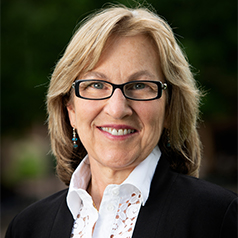 Katherine Browne, professor of anthropology, has conducted path-breaking research in the field of cultural anthropology and has emerged as one of her discipline’s most recognized scholars. So, it is fitting that she is the first from her department – and just the fourth from the College of Liberal Arts – to be named University Distinguished Professor, CSU’s highest academic recognition.
“To me, this award acknowledges the power of liberal arts disciplines as vital players in comprehending and solving the most pressing global issues,” said Browne, a member of CSU’s Department of Anthropology since 1994. “For my part, as a cultural anthropologist, I study communities that are impacted by disasters intensified by climate change. I began this work in Louisiana after Katrina. My current post-Hurricane Harvey work in Texas focuses on perceptions of risk among city dwellers, coastal townspeople, cattle ranchers and cotton farmers.”
Browne has emerged as a leading voice in the public discourse of disaster, addressing in particular how the distribution of resources in a society can alter disaster’s lasting impacts, and how cultural factors figure into recovery. Her research with an African-American family of 150 and their efforts to reclaim their pre-hurricane lives resulted first in her 2007 film Still Waiting: Life After Katrina, funded by the National Science Foundation. After six more years of study, she published her book, Standing in the Need: Culture, Comfort, and Coming Home After Katrina.
“In the process of documenting the Johnson-Fernandez family in St. Bernard Parish, I learned how the cultural disconnect between outside institutions like FEMA and the needs of local people led to immense suffering. It galvanized me,” Browne said. “I started writing op-eds and speaking in public forums – anything I could to communicate what I had learned to more people.”
More recently, Browne’s leadership in bringing together academics and practitioners through the Culture and Disaster Action Network (CADAN) has focused on changing disaster practice and policy by integrating cultural knowledge. With her CADAN collaborators, Browne’s research formed the basis for a 2019 FEMA report that diagnosed the paralysis in U.S. preparedness efforts and offered a culture-based approach as a more effective and sustainable solution.
Browne’s work has earned the attention and respect of her peers in anthropology. The substance and reach of her scholarship earned her the 2018 Franz Boas Award for Exemplary Service to Anthropology, considered the “Nobel Prize for anthropologists.”
“Kate’s record speaks for itself – its depth and breadth are staggering – from NSF-funded research, two detailed ethnographies in book format, high-impact articles, NPR interviews, and two documentary films,” said Mica Glantz, head of the Department of Anthropology. “What distinguishes her from other highly productive scholars is that she has made it a priority to communicate her findings not only to the subjects of her research, but also to the public and to our government. She is a true public scholar.”
Browne has received both The Ann Gill Excellence in Teaching Award and the Best Teacher Award. In keeping with her integrated approach to research and teaching, Browne will launch the nation’s first field school for the study of risk and disaster, a collaboration with Texas A&M-Corpus Christi. At the school, CSU students will have direct experience conducting ethnographic and geospatial research in an area still recovering from the effects of Hurricane Harvey.
“Her work, and now the work of the field school, becomes part of multi-disciplinary efforts to consult and recommend new and better ways our society can improve its protocols for mitigating risk and building resilience for recovering from disaster,” said Glantz. “That’s why her work is so important.”
Browne noted that when scholars in human-centered disciplines join forces with their colleagues in the natural and technical sciences, they become a force for change, a force for good.
“We absolutely need the assembled power of all kinds of expertise, both to recognize the fullness of a problem and to then imagine solutions that embrace that fullness.”
Katherine Browne, professor of anthropology, has conducted path-breaking research in the field of cultural anthropology and has emerged as one of her discipline’s most recognized scholars. So, it is fitting that she is the first from her department – and just the fourth from the College of Liberal Arts – to be named University Distinguished Professor, CSU’s highest academic recognition.
“To me, this award acknowledges the power of liberal arts disciplines as vital players in comprehending and solving the most pressing global issues,” said Browne, a member of CSU’s Department of Anthropology since 1994. “For my part, as a cultural anthropologist, I study communities that are impacted by disasters intensified by climate change. I began this work in Louisiana after Katrina. My current post-Hurricane Harvey work in Texas focuses on perceptions of risk among city dwellers, coastal townspeople, cattle ranchers and cotton farmers.”
Browne has emerged as a leading voice in the public discourse of disaster, addressing in particular how the distribution of resources in a society can alter disaster’s lasting impacts, and how cultural factors figure into recovery. Her research with an African-American family of 150 and their efforts to reclaim their pre-hurricane lives resulted first in her 2007 film Still Waiting: Life After Katrina, funded by the National Science Foundation. After six more years of study, she published her book, Standing in the Need: Culture, Comfort, and Coming Home After Katrina.
“In the process of documenting the Johnson-Fernandez family in St. Bernard Parish, I learned how the cultural disconnect between outside institutions like FEMA and the needs of local people led to immense suffering. It galvanized me,” Browne said. “I started writing op-eds and speaking in public forums – anything I could to communicate what I had learned to more people.”
More recently, Browne’s leadership in bringing together academics and practitioners through the Culture and Disaster Action Network (CADAN) has focused on changing disaster practice and policy by integrating cultural knowledge. With her CADAN collaborators, Browne’s research formed the basis for a 2019 FEMA report that diagnosed the paralysis in U.S. preparedness efforts and offered a culture-based approach as a more effective and sustainable solution.
Browne’s work has earned the attention and respect of her peers in anthropology. The substance and reach of her scholarship earned her the 2018 Franz Boas Award for Exemplary Service to Anthropology, considered the “Nobel Prize for anthropologists.”
“Kate’s record speaks for itself – its depth and breadth are staggering – from NSF-funded research, two detailed ethnographies in book format, high-impact articles, NPR interviews, and two documentary films,” said Mica Glantz, head of the Department of Anthropology. “What distinguishes her from other highly productive scholars is that she has made it a priority to communicate her findings not only to the subjects of her research, but also to the public and to our government. She is a true public scholar.”
Browne has received both The Ann Gill Excellence in Teaching Award and the Best Teacher Award. In keeping with her integrated approach to research and teaching, Browne will launch the nation’s first field school for the study of risk and disaster, a collaboration with Texas A&M-Corpus Christi. At the school, CSU students will have direct experience conducting ethnographic and geospatial research in an area still recovering from the effects of Hurricane Harvey.
“Her work, and now the work of the field school, becomes part of multi-disciplinary efforts to consult and recommend new and better ways our society can improve its protocols for mitigating risk and building resilience for recovering from disaster,” said Glantz. “That’s why her work is so important.”
Browne noted that when scholars in human-centered disciplines join forces with their colleagues in the natural and technical sciences, they become a force for change, a force for good.
“We absolutely need the assembled power of all kinds of expertise, both to recognize the fullness of a problem and to then imagine solutions that embrace that fullness.”Dan Beachy-Quick
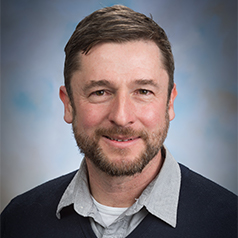 Dan Beachy-Quick, a professor and assistant chair in the Department of English, has been named a University Distinguished Teaching Scholar for his outstanding accomplishments at Colorado State University.
Beachy-Quick, one of only three College of Liberal Arts faculty members to have been named a Monfort Professor, is an award-winning poet, author and teacher who oversees undergraduate education in the Department of English.
A Guggenheim Fellow, Beachy-Quick has been awarded a Creative Arts Fellowship at Harvard University and has been invited as a guest professor to the Iowa Writers’ Workshop, Yale University and many other institutions around the world.
Among his colleagues, Beachy-Quick is known as an exceptional teacher dedicated to his students and his profession. He has an unparalleled record of curricular innovation through the creation of new courses, new programs and service to the department.
Following being named a Monfort Professor in 2013, Beachy-Quick set out to become a teacher who offers his students access to classes in ancient literature translation. After gaining a proficiency in Classical Greek and reading through much of the 300-volume Loeb Classical Library, he designed transformative course offerings for students on the foundational works of Western civilization.
English Department Professor and Chair Louann Reid and Assistant Professor Zach Hutchins said in their nomination letter that Beachy-Quick’s impact on students is significant. They said his students so deeply internalize the lessons in his courses on Homer’s Iliad. His students also read the classical tragedians in the course: Aeschylus, Sophocles and Euripides.
One former student said: “What distinguishes Dan Beachy-Quick as a teacher is his empathy. This applies to his interactions with students, but also to his treatment of student work. Regardless of stylistic difference, Dan is able to intuit and adapt himself to the essence of a project and help his students magnify what is most true and real about their writing and their process.”
Additionally, Beachy-Quick’s Monfort Professorship led to the Crisis and Creativity Symposium, a radical experiment in the power of interdisciplinary collaboration. The symposium sought ways to reinvigorate the conversation between the arts, humanities, social sciences and sciences.
Results of the symposium included: a research grant to create an art installation on species extinction; performance art delivered at the Warner College of Natural Resources; and an interdisciplinary course – The Thinking Hand – that examines different types of media for art, such as words and clay, and seeks to discover curious grounds of overlap and reciprocity.
Beachy-Quick also is a prolific and accomplished writer of multiple genres – poetry, essay, fiction. His list of publications spans eight pages of his curriculum vitae, which includes eight collections of poetry, a novel and a book about English poet John Keats, among others.
“What sets Professor Beachy-Quick apart is that he is an incomparable proponent for the core values of the University, what he calls the ‘serious play’ that lurks at the roots of our intellectual lives,” said Ben Withers, dean of the College of Liberal Arts. “A poet by profession, he possesses the unparalleled ability to translate the prose of everyday academic pursuits into a higher, more measured and reveling language.”
Dan Beachy-Quick, a professor and assistant chair in the Department of English, has been named a University Distinguished Teaching Scholar for his outstanding accomplishments at Colorado State University.
Beachy-Quick, one of only three College of Liberal Arts faculty members to have been named a Monfort Professor, is an award-winning poet, author and teacher who oversees undergraduate education in the Department of English.
A Guggenheim Fellow, Beachy-Quick has been awarded a Creative Arts Fellowship at Harvard University and has been invited as a guest professor to the Iowa Writers’ Workshop, Yale University and many other institutions around the world.
Among his colleagues, Beachy-Quick is known as an exceptional teacher dedicated to his students and his profession. He has an unparalleled record of curricular innovation through the creation of new courses, new programs and service to the department.
Following being named a Monfort Professor in 2013, Beachy-Quick set out to become a teacher who offers his students access to classes in ancient literature translation. After gaining a proficiency in Classical Greek and reading through much of the 300-volume Loeb Classical Library, he designed transformative course offerings for students on the foundational works of Western civilization.
English Department Professor and Chair Louann Reid and Assistant Professor Zach Hutchins said in their nomination letter that Beachy-Quick’s impact on students is significant. They said his students so deeply internalize the lessons in his courses on Homer’s Iliad. His students also read the classical tragedians in the course: Aeschylus, Sophocles and Euripides.
One former student said: “What distinguishes Dan Beachy-Quick as a teacher is his empathy. This applies to his interactions with students, but also to his treatment of student work. Regardless of stylistic difference, Dan is able to intuit and adapt himself to the essence of a project and help his students magnify what is most true and real about their writing and their process.”
Additionally, Beachy-Quick’s Monfort Professorship led to the Crisis and Creativity Symposium, a radical experiment in the power of interdisciplinary collaboration. The symposium sought ways to reinvigorate the conversation between the arts, humanities, social sciences and sciences.
Results of the symposium included: a research grant to create an art installation on species extinction; performance art delivered at the Warner College of Natural Resources; and an interdisciplinary course – The Thinking Hand – that examines different types of media for art, such as words and clay, and seeks to discover curious grounds of overlap and reciprocity.
Beachy-Quick also is a prolific and accomplished writer of multiple genres – poetry, essay, fiction. His list of publications spans eight pages of his curriculum vitae, which includes eight collections of poetry, a novel and a book about English poet John Keats, among others.
“What sets Professor Beachy-Quick apart is that he is an incomparable proponent for the core values of the University, what he calls the ‘serious play’ that lurks at the roots of our intellectual lives,” said Ben Withers, dean of the College of Liberal Arts. “A poet by profession, he possesses the unparalleled ability to translate the prose of everyday academic pursuits into a higher, more measured and reveling language.”Eugene Chen
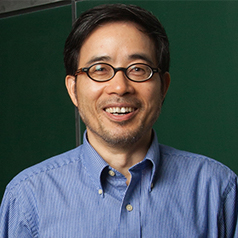 Eugene Chen, the John K. Stille Endowed Chair in the College of Natural Sciences and Millennial Professor of Polymer Science and Sustainability in the Department of Chemistry, has received Colorado State University’s 2019 Scholarship Impact Award. The award is among CSU’s highest honors for faculty.
The Scholarship Impact Award recognizes distinguished CSU faculty “whose scholarship has had a major impact nationally or internationally.”
Chen is a broadly trained and extensively published scientist who works in the fields of inorganic, organic, organometallic and polymer-materials chemistry. One of his major areas of research is in recyclable polymers, for which he and his students are developing groundbreaking new methods and materials. With polymers produced worldwide at the level of more than 335 million metric tons per year, Chen’s research is aimed at creating recyclable, sustainable materials that can compete with currently unsustainable commodity plastics.
Chen’s scholarly impacts are listed in a nomination letter penned by Department of Chemistry colleagues Richard Finke and Garret Miyake. They include: 178 peer-reviewed research papers; 23 issued U.S. patents; 190 invited lectures; and over 9,000 citations of his work. His impacts are also apparent in his students past and present; besides those working in the industry, five of his former graduate students or postdocs have become full professors, three are now associate professors, and four are assistant professors.
Chen’s major awards and honors to date include: the Presidential Green Chemistry Award by the Environmental Protection Agency; the Arthur Cope Scholar Award by the American Chemical Society; being named a Fellow of American Association for the Advancement of Science; an Alfred P. Sloan Research Fellowship; an award for Excellence in Commercialization by Colorado Cleantech Industry Association; Special Recognition Award for Outstanding Technical Contributions by the Dow Chemical Co.; and a Faculty Excellence in Graduate Education and Mentoring Award.
Chen, wrote Finke, is a “deep, broad, creative, highly energetic, hard-working, hugely talented, and above all ultra-scholarly scientist – one archetypal of CSU’s prestigious Scholarship Impact Award.”
Eugene Chen, the John K. Stille Endowed Chair in the College of Natural Sciences and Millennial Professor of Polymer Science and Sustainability in the Department of Chemistry, has received Colorado State University’s 2019 Scholarship Impact Award. The award is among CSU’s highest honors for faculty.
The Scholarship Impact Award recognizes distinguished CSU faculty “whose scholarship has had a major impact nationally or internationally.”
Chen is a broadly trained and extensively published scientist who works in the fields of inorganic, organic, organometallic and polymer-materials chemistry. One of his major areas of research is in recyclable polymers, for which he and his students are developing groundbreaking new methods and materials. With polymers produced worldwide at the level of more than 335 million metric tons per year, Chen’s research is aimed at creating recyclable, sustainable materials that can compete with currently unsustainable commodity plastics.
Chen’s scholarly impacts are listed in a nomination letter penned by Department of Chemistry colleagues Richard Finke and Garret Miyake. They include: 178 peer-reviewed research papers; 23 issued U.S. patents; 190 invited lectures; and over 9,000 citations of his work. His impacts are also apparent in his students past and present; besides those working in the industry, five of his former graduate students or postdocs have become full professors, three are now associate professors, and four are assistant professors.
Chen’s major awards and honors to date include: the Presidential Green Chemistry Award by the Environmental Protection Agency; the Arthur Cope Scholar Award by the American Chemical Society; being named a Fellow of American Association for the Advancement of Science; an Alfred P. Sloan Research Fellowship; an award for Excellence in Commercialization by Colorado Cleantech Industry Association; Special Recognition Award for Outstanding Technical Contributions by the Dow Chemical Co.; and a Faculty Excellence in Graduate Education and Mentoring Award.
Chen, wrote Finke, is a “deep, broad, creative, highly energetic, hard-working, hugely talented, and above all ultra-scholarly scientist – one archetypal of CSU’s prestigious Scholarship Impact Award.”Aaron Sholders
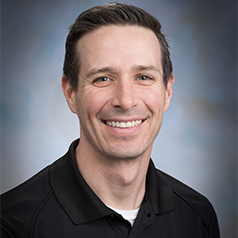 Aaron Sholders, an instructor in the Department of Biochemistry and Molecular Biology, is the recipient of the Board of Governors Excellence in Undergraduate Teaching Award, one of the university’s highest honors.
Sholders, who has been with the department since 2006, is an innovative instructor who uses new technologies to engage his students. He is regarded in the department and beyond as an expert on pedagogical techniques and practices and has played a significant role in the growth of the department’s undergraduate program.
“Dr. Sholders has established himself as an innovative and rigorous teacher, a mentor to other faculty and an outstanding adviser to our undergraduate students,” said Laurie Stargell, professor and chair of the Department of Biochemistry and Molecular Biology. “He is one of those rare individuals who both connects with and inspires students in his classroom. It is no exaggeration to state that he is probably the most popular instructor in the department, if not the College of Natural Sciences.”
Sholders, who was appointed to a senior teaching position in 2012, has utilized new and emerging technologies to better connect with students. As a research scientist, he is known to take a problem-solving approach to assessing the effectiveness of instructional technologies and improving them.
As an example, Sholders found that many students in the in-class Q&A sessions were not participating because they were not comfortable speaking in public. To solve the challenge, he used Slido, an interactive, web-based audience application that allows students ask questions anonymously, which helped improve engagement in the sessions.
Stargell estimates that Sholders has taught 4,428 students and has generated over 22,000 student credit hours, remarkably all at the upper-division 300-400 level courses, as well as teaching another 1,100 students online.
Among his students, Sholders is known as a rigorous but fair instructor, and he is highly sought after as an adviser for senior theses by students in both the Department of Biochemistry and Molecular Biology and the University Honors Program.
Said one former student, “As an instructor, Dr. Sholders has provided me with foundational information needed to understand course material while challenging me through difficult assignments to apply what I know to real-life situations. He is one of the most engaging professors I have had at CSU.”
Sholders’ previous honors in teaching and mentoring have included the Jack E. Cermak Advising Award in 2010, the College of Natural Science Faculty Excellence in Undergraduate Teaching Award in 2011 and the N. Preston Davis Award for Instructional Innovation in 2015. He is a graduate of CSU, where he earned his doctorate and master’s degree in biochemistry and molecular biology.
Aaron Sholders, an instructor in the Department of Biochemistry and Molecular Biology, is the recipient of the Board of Governors Excellence in Undergraduate Teaching Award, one of the university’s highest honors.
Sholders, who has been with the department since 2006, is an innovative instructor who uses new technologies to engage his students. He is regarded in the department and beyond as an expert on pedagogical techniques and practices and has played a significant role in the growth of the department’s undergraduate program.
“Dr. Sholders has established himself as an innovative and rigorous teacher, a mentor to other faculty and an outstanding adviser to our undergraduate students,” said Laurie Stargell, professor and chair of the Department of Biochemistry and Molecular Biology. “He is one of those rare individuals who both connects with and inspires students in his classroom. It is no exaggeration to state that he is probably the most popular instructor in the department, if not the College of Natural Sciences.”
Sholders, who was appointed to a senior teaching position in 2012, has utilized new and emerging technologies to better connect with students. As a research scientist, he is known to take a problem-solving approach to assessing the effectiveness of instructional technologies and improving them.
As an example, Sholders found that many students in the in-class Q&A sessions were not participating because they were not comfortable speaking in public. To solve the challenge, he used Slido, an interactive, web-based audience application that allows students ask questions anonymously, which helped improve engagement in the sessions.
Stargell estimates that Sholders has taught 4,428 students and has generated over 22,000 student credit hours, remarkably all at the upper-division 300-400 level courses, as well as teaching another 1,100 students online.
Among his students, Sholders is known as a rigorous but fair instructor, and he is highly sought after as an adviser for senior theses by students in both the Department of Biochemistry and Molecular Biology and the University Honors Program.
Said one former student, “As an instructor, Dr. Sholders has provided me with foundational information needed to understand course material while challenging me through difficult assignments to apply what I know to real-life situations. He is one of the most engaging professors I have had at CSU.”
Sholders’ previous honors in teaching and mentoring have included the Jack E. Cermak Advising Award in 2010, the College of Natural Science Faculty Excellence in Undergraduate Teaching Award in 2011 and the N. Preston Davis Award for Instructional Innovation in 2015. He is a graduate of CSU, where he earned his doctorate and master’s degree in biochemistry and molecular biology.Amber Krummel
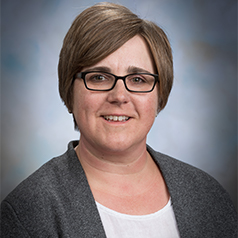 Amber Krummel, an associate professor in the Department of Chemistry who has made significant breakthroughs in the direct visualization of chemical reactions and dynamics, has been named a Monfort Professor.
One of Colorado State University’s highest honors, Monfort Professorships are awarded to faculty who are considered rising stars in their fields. The two-year awards are made possible by the Monfort Family Foundation.
Krummel, who joined the Department of Chemistry in 2010 and was named an associate professor in 2017, is known to her colleagues as a trailblazer in chemistry, especially in the field of spectroscopy, which examines the interaction between matter and light.
Krummel built a high-repetition-rate laser system that could take spectroscopic pictures of molecules 100,000 times a second to help researchers understand how they are moving with time.
“This motion-picture of molecules doing their dance in tiny spatial scales (micrometer arenas) has enabled her ability to see and understand chemical and other phenomena,” University Distinguished Professor A.R. Ravishankara and Professor Grzegorz Szamel said in their nomination letter.
Since then, Krummel has used her tool to answer one of the key open questions in materials science: How are molecules distributed inside a microscopic droplet compared to a large volume, where they are uniformly distributed and not influenced by surface forces?
She and her students used their tool to image chemical dynamics across an ionic liquid microdroplet, showing that the solutes at or near the surface move differently than those located well inside the droplet.
Additionally, Krummel has developed a growing research group that has published in leading chemistry and optics journals. She, herself, has been published in more than 30 peer-reviewed journals, has given more than 40 invited talks and has filed eight provisional patents.
Krummel “has breathed new life into our physical chemistry program and is rapidly establishing herself as a cornerstone of a rising chemistry department,” said Matthew P. Shores, professor and chair of the Department of Chemistry. “Her dedication to our students, her research and our University fits exactly with the criteria desired in Monfort Professors.”
As an instructor, Krummel has taught at both the undergraduate and graduate levels and is regularly sought out by students who wish to work in her lab. She has taught courses ranging from general chemistry to graduate-level specialty seminars. She was awarded the 2016 College of Natural Sciences Early Career Faculty Excellence in Teaching and Mentoring Award.
Krummel plans to use the Monfort resources to support graduate students in a new research effort to investigate the nature of the solid-electrolyte interphase generated in energy storage devices.
“Amber Krummel is clearly worthy of this distinction,” said Janice Nerger, dean of the College of Natural Sciences. “Her high level of scholarly accomplishments, her degree of national and international attention, her excellence in the classroom, dedication to graduate and undergraduate research and her clear success in supporting her research through external funding, places her among the most productive faculty in the college.”
Amber Krummel, an associate professor in the Department of Chemistry who has made significant breakthroughs in the direct visualization of chemical reactions and dynamics, has been named a Monfort Professor.
One of Colorado State University’s highest honors, Monfort Professorships are awarded to faculty who are considered rising stars in their fields. The two-year awards are made possible by the Monfort Family Foundation.
Krummel, who joined the Department of Chemistry in 2010 and was named an associate professor in 2017, is known to her colleagues as a trailblazer in chemistry, especially in the field of spectroscopy, which examines the interaction between matter and light.
Krummel built a high-repetition-rate laser system that could take spectroscopic pictures of molecules 100,000 times a second to help researchers understand how they are moving with time.
“This motion-picture of molecules doing their dance in tiny spatial scales (micrometer arenas) has enabled her ability to see and understand chemical and other phenomena,” University Distinguished Professor A.R. Ravishankara and Professor Grzegorz Szamel said in their nomination letter.
Since then, Krummel has used her tool to answer one of the key open questions in materials science: How are molecules distributed inside a microscopic droplet compared to a large volume, where they are uniformly distributed and not influenced by surface forces?
She and her students used their tool to image chemical dynamics across an ionic liquid microdroplet, showing that the solutes at or near the surface move differently than those located well inside the droplet.
Additionally, Krummel has developed a growing research group that has published in leading chemistry and optics journals. She, herself, has been published in more than 30 peer-reviewed journals, has given more than 40 invited talks and has filed eight provisional patents.
Krummel “has breathed new life into our physical chemistry program and is rapidly establishing herself as a cornerstone of a rising chemistry department,” said Matthew P. Shores, professor and chair of the Department of Chemistry. “Her dedication to our students, her research and our University fits exactly with the criteria desired in Monfort Professors.”
As an instructor, Krummel has taught at both the undergraduate and graduate levels and is regularly sought out by students who wish to work in her lab. She has taught courses ranging from general chemistry to graduate-level specialty seminars. She was awarded the 2016 College of Natural Sciences Early Career Faculty Excellence in Teaching and Mentoring Award.
Krummel plans to use the Monfort resources to support graduate students in a new research effort to investigate the nature of the solid-electrolyte interphase generated in energy storage devices.
“Amber Krummel is clearly worthy of this distinction,” said Janice Nerger, dean of the College of Natural Sciences. “Her high level of scholarly accomplishments, her degree of national and international attention, her excellence in the classroom, dedication to graduate and undergraduate research and her clear success in supporting her research through external funding, places her among the most productive faculty in the college.”Tim Stasevich
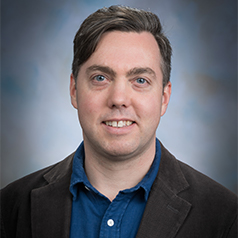 Tim Stasevich, a physicist-turned-biochemist who specializes in single-molecule imaging of critical biological processes, has been named a Monfort Professor, one of Colorado State University’s highest honors for faculty.
An assistant professor in the Department of Biochemistry and Molecular Biology, Stasevich joined the CSU faculty in 2014 and has since been recognized for his work through numerous awards, grants, media appearances and high-impact publications.
“Tim has surpassed ‘rising star’ status and has now established himself as a true superstar in his field,” wrote a committee of his peers in a nomination letter. “It is an understatement to say that Colorado State University and the [department] are lucky to have him.”
Since coming to CSU, Stasevich has become a respected leader in biochemical imaging. His lab made a significant breakthrough by imaging single-molecule RNA translation dynamics in living cells using a custom-built system, which his group published about in Science. Stasevich is also the recipient of a NIH Maximizing Investigators’ Research Award, a Keck Foundation award, a Boettcher Foundation award, and a National Science Foundation Faculty Early Career Development award.
Stasevich is a physicist by training, holding a B.S., M.S. and Ph.D. in physics, but he became fascinated by cell biology during his graduate work. That next stage of his career was jumpstarted by a National Institutes of Health postdoctoral position with James McNally, where Stasevich developed a passion for understanding transcriptional processes and protein dynamics in living cells. He later was a postdoctoral researcher at Osaka University in Japan with Hiroshi Kimura, where he developed a novel biochemical technique to mark endogenous protein modifications in living cells and designed microscopes to image those modifications.
Just before moving to CSU, Stasevich served as a visiting scholar at the Howard Hughes Medical Institute Research campus, where he solved a major controversy in the field of epigenetics and published about it in Nature.
Beyond his research program, Stasevich has proven himself a valued mentor and teacher of undergraduate and graduate students. Actively mentoring several Ph.D. and undergraduate students in his lab, he also previously won the CSU Graduate Advising and Mentoring Award. Selected by the Graduate Student Council, that award is based on educational guidance, career development and interpersonal relationship skills.
Stasevich also engages in service and outreach activities by serving as a reviewer for journal papers, serving on committees and supporting students; notably, Stasevich has helped revive the Biochemistry Club and is its faculty adviser.
Said his nominators: ” [Stasevich] embodies all that a Monfort Professor should be – a scholar and research pioneer, a dedicated and talented teacher, and an effective and engaged mentor.”
Made possible through the Monfort Family Foundation, Monfort Professorships are two-year awards that help CSU attract and retain talented young faculty.
Tim Stasevich, a physicist-turned-biochemist who specializes in single-molecule imaging of critical biological processes, has been named a Monfort Professor, one of Colorado State University’s highest honors for faculty.
An assistant professor in the Department of Biochemistry and Molecular Biology, Stasevich joined the CSU faculty in 2014 and has since been recognized for his work through numerous awards, grants, media appearances and high-impact publications.
“Tim has surpassed ‘rising star’ status and has now established himself as a true superstar in his field,” wrote a committee of his peers in a nomination letter. “It is an understatement to say that Colorado State University and the [department] are lucky to have him.”
Since coming to CSU, Stasevich has become a respected leader in biochemical imaging. His lab made a significant breakthrough by imaging single-molecule RNA translation dynamics in living cells using a custom-built system, which his group published about in Science. Stasevich is also the recipient of a NIH Maximizing Investigators’ Research Award, a Keck Foundation award, a Boettcher Foundation award, and a National Science Foundation Faculty Early Career Development award.
Stasevich is a physicist by training, holding a B.S., M.S. and Ph.D. in physics, but he became fascinated by cell biology during his graduate work. That next stage of his career was jumpstarted by a National Institutes of Health postdoctoral position with James McNally, where Stasevich developed a passion for understanding transcriptional processes and protein dynamics in living cells. He later was a postdoctoral researcher at Osaka University in Japan with Hiroshi Kimura, where he developed a novel biochemical technique to mark endogenous protein modifications in living cells and designed microscopes to image those modifications.
Just before moving to CSU, Stasevich served as a visiting scholar at the Howard Hughes Medical Institute Research campus, where he solved a major controversy in the field of epigenetics and published about it in Nature.
Beyond his research program, Stasevich has proven himself a valued mentor and teacher of undergraduate and graduate students. Actively mentoring several Ph.D. and undergraduate students in his lab, he also previously won the CSU Graduate Advising and Mentoring Award. Selected by the Graduate Student Council, that award is based on educational guidance, career development and interpersonal relationship skills.
Stasevich also engages in service and outreach activities by serving as a reviewer for journal papers, serving on committees and supporting students; notably, Stasevich has helped revive the Biochemistry Club and is its faculty adviser.
Said his nominators: ” [Stasevich] embodies all that a Monfort Professor should be – a scholar and research pioneer, a dedicated and talented teacher, and an effective and engaged mentor.”
Made possible through the Monfort Family Foundation, Monfort Professorships are two-year awards that help CSU attract and retain talented young faculty.Advisor Gratitude Award for Outstanding Advisor of the Year
Recognizes an advisor of a student organization that demonstrates strong interpersonal skills, mentorship with student organizations and knowledge of institution regulations and procedures throughout the academic year.
Seth Pendergast
School of Music, Theatre, and Dance
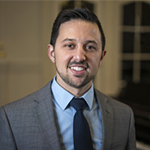
Albert C. Yates Student Leadership Award
An award given to a student that has shown strong involvement as a student with demonstrated leadership and a commitment to upholding CSU’s values, traditions and spirit.
Allie Kounter ’19
Biomedical Sciences
Alumni Association
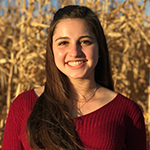
Martin Luther King Jr. Scholarship
Awarded to a graduate student for outstanding achievement in academics and service to and advancement of diversity.
Vanessa Vosteen ’23
Psychology
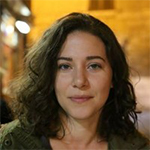
Office of International Programs Distinguished Service Award
Recognizes faculty or staff who have made a significant impact campus-wide on internationalization efforts of Colorado State University.
Sally Alexander
Risk Management and Insurance
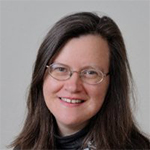
Kathleen Henry
CSU Research Foundation
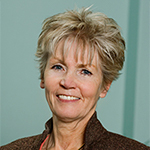
Katya Stewart-Sweeney
Electrical and Computer Engineering
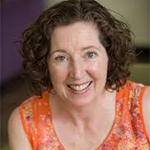
Managemen
Margaret B. Hazaleus Award
The Hazaleus awards were started in 1997 to honor individuals for long-term efforts to enhance the opportunities and the campus environment for women.
Margit Hentschel
The Institute for Learning and Teaching
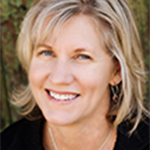
Louise Jennings
Education
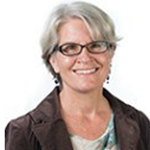
Casey Malsam
Women and Gender Advocacy Center
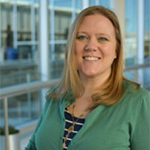
Enrollment and Access Distinguished Service Award
Recognizes individuals or groups who have supported the vision, mission and efforts of the Division of Enrollment and Access.
Aaron Escobedo
Community for Excellence
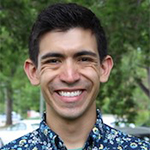
Multicultural Staff and Faculty Network Distinguished Service Award
Honors individuals who have made outstanding contributions to diversity, inclusive excellence and multiculturalism in their professions and the multicultural community.
Michelle Foster
Food Science and Human Nutrition
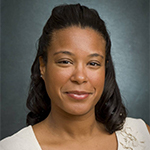
Jan Iron
Agricultural Experiment
Station
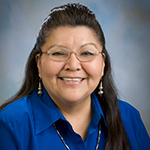
Patrice Palmer
College of
Business

Alfreda Whaley
Residential
Dining
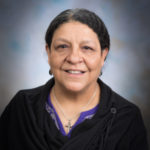
x
CSU Extension Distinguished Service Award
Recognizes individuals for their commitment to CSU Extension and contributions to Extension’s goals.
Steve Acquafresca
Colorado River District
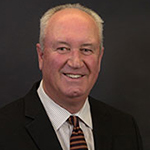
x
Oliver P. Pennock Distinguished Service Award
Recognizes meritorious and outstanding achievement over a five-year period by full-time members of the academic faculty; established as a tribute to Professor Pennock, who served as a distinguished professor of Civil Engineering in the 1920s.
Zinta Byrne
Department of
Psychology
X
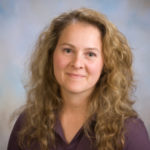
Mary Ontiveros
Vice President for
Diversity
X
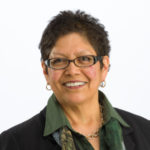
Jorge Ramirez
Civil and Environmental Engineering
X
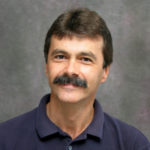
Anthony Rappe
Department of
Chemistry
X
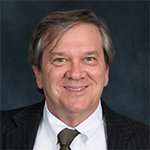
Jack E. Cermak Advising Award
Endowed in 1984 to honor excellence in academic advising, including recognition by students and peers as an outstanding advisor; capacity to offer career as well as academic advising; interpersonal communication skills that lead to beneficial advising relationships; and contributions to the improvement of advising services and/or the appreciation of academic advising throughout the campus.
J. Lucas Argueso
Environmental and Radiological Health Sciences
X
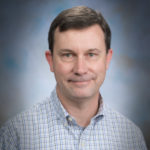
Meena Balgopal
Department of
Biology
X
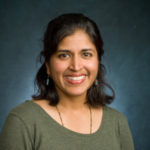
Jill Putman
Department of
Geosciences
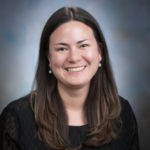
Toni-Lee Viney
Department of Mechanical Engineering
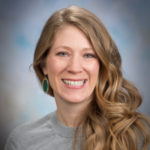
Classified Personnel Council Outstanding Achievement Award
Recognizes meritorious and outstanding achievement in job skills and service to the University by State Classified employees.
Stacey Baumgarn
Facilities
Management
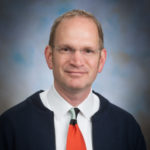
Emily Farrenkopf
College of
Liberal Arts
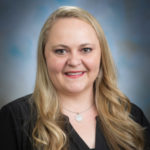
Zara Hopkins
Food Science and Human Nutrition
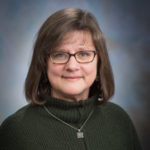
Teresa Krueger
College of
Business
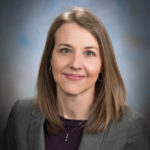
Alfreda Whaley
Residential
Dining

Distinguished Administrative Professional Award
Presented to administrative professional staff for continuing meritorious and outstanding achievement in the areas of outreach, teaching, administration, and/or research; awarded by the Administrative Professional Council.
D Tobiassen Baitinger
Office of the Registrar
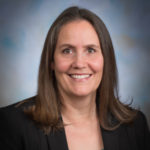
Cecily Broomfield
Orthopaedic Bioengineering Research Laboratory
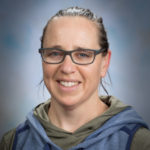
Fred Haberecht
Facilities Management
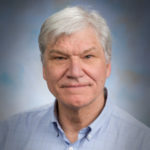
Gary Ozzello
Office of the Vice President for
External Relations
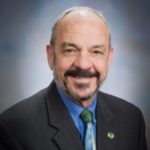
Bruce Smith
CSU Health Network

The Faculty Institute for Inclusive Excellence Diversity Impact Award
Awarded to one Faculty Institute for Inclusive Excellence Fellow who has actively transformed their classroom and positively influenced campus climate. The awardee has raised awareness regarding diversity and inclusion such that it is integrated into pedagogical practices.
Andrew Norton
Bioagricultural Sciences & Pest Management
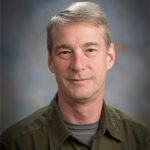
Exceptional Achievement in Service Learning Student Award
Recognizes a student or a student group for remarkable contributions in service-learning courses and/or community-based research; awarded by the Service Integration Project.
Student Sustainability Center: Accepting – Nevan Mandel
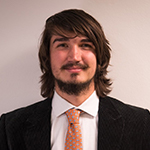
Exceptional Achievement in Service Learning Community Partner Award
Presented to an outstanding Colorado State University community partner for their notable contributions to and participation in service-learning courses, initiatives or community-based research.
Boys and Girls Clubs of Larimer County: Accepting – Kaycee Headrick
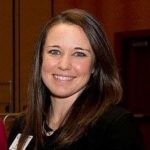
Pets Forever: Accepting – Sara Van Etten
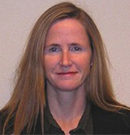
Exceptional Achievement in Service Learning Instructional Innovation Award
Honors Colorado State University faculty members who demonstrate an innovative contribution to service learning curriculum development and/or community outreach.
Delwin E. Benson
Fish, Wildlife, and Conservation Biology
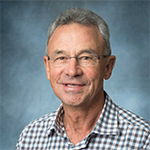
Spirit of Philanthropy Award
Recognizes a faculty or staff member whose commitment and passion to support CSU have made a significant impact on the fundraising efforts of the university.
Fred Haberecht
Facilities Management

Innovative Excellence Award presented by CSU Ventures
The CSU Ventures 2014 Award for Innovative Excellence is presented to a researcher who is not only an innovator, but someone whose innovations have been transferred to industry and are exhibiting strong potential for commercial success. With this award, CSU Ventures seeks to recognize the research excellence and acknowledge the impact that their innovation has outside of the University, on the lives of many people around the world.
Tori Anderson
Soil and Crop
Sciences
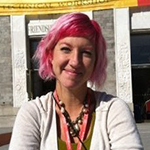
Scott Haley
Soil and Crop
Sciences
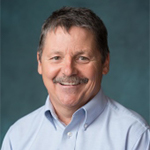
Michael Ostlie
Soil and Crop
Sciences
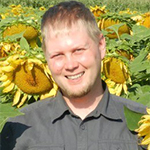
Philip Westra
Bioagricultural Sciences and Pest Management
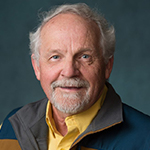
Interdisciplinary Scholarship Award
Recognizes either a faculty member or research team whose interdisciplinary scholarship has had a major impact nationally and/or internationally, or who have demonstrated their potential to do so.
Interdisciplinary Scholarship Individual Award
George Barisas
Chemistry
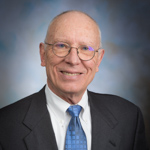
Interdisciplinary Scholarship Individual Team Award
Asa Ben-Hur
Computer Science (Team Lead)
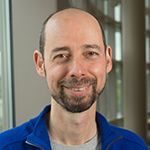
Anireddy S.N. Reddy
Biology

Interdisciplinary Scholarship Individual Team Award
Christian Puttlitz
Mechanical Engineering (Team Lead)
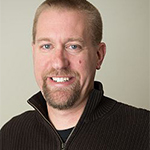
Jeremiah Easley
Clinical Sciences and Biomedical Engineering
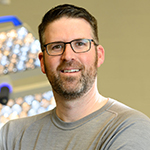
Eileen Hackett
Department of Clinical
Sciences
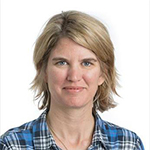
Kirk McGilvray
Mechanical Engineering and Biomedical Engineering
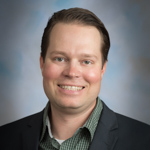
Brad Nelson
Clinical Sciences and Biomedical Engineering
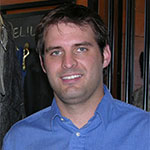
Ross Palmer
Clinical Sciences and Biomedical Engineering

Dan Regan
Microbiology, Immunology, and Pathology
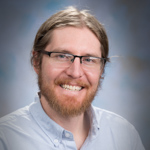
Howard Seim III
Clinical Sciences and Biomedical Engineering
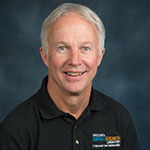
The President’s Council on Culture Award for Notable Contributions to the Culture of Colorado State University
The President’s Council on Culture Award recognizes units, individuals or teams that have contributed in significant and positive ways to creating a University culture that supports excellence in fulfillment of CSU’s mission; supports the success, engagement, and advancement of all its members; embraces inclusion and diversity in all its dimensions, as essential to a robust and sustainable academic community; celebrates a culture of respect, integrity, truth, and equity as the foundation for a health campus climate; and rewards innovation, change, and disruption to norms that impede the improvement of University culture.
Principles of Community Participants

Community Engagement Scholarship Award – Emerging Category
The CSU Community Engagement Scholarship Awards, jointly established by the Office of the Provost and Office of Engagement, are conferred annually in recognition of exemplary engaged scholarship by CSU faculty or academic staff members and their community partner(s). The Emerging award celebrates a new initiative that has shown potential for long-term impact, achievement and scholarship.
Community Alliance for Education and Hunger Relief: Accepting – Amanda McQuade
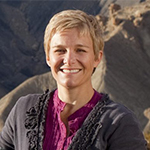
Community Engagement Scholarship Award – Distinguished Category
The CSU Community Engagement Scholarship Awards, jointly established by the Office of the Provost and Office of Engagement, are conferred annually in recognition of exemplary engaged scholarship by CSU faculty or academic staff members and their community partner(s). The Distinguished award celebrates a collaboration, project or program with a long-term record of sustained impact, achievement and scholarship.
Campus Connections Youth Mentoring Program, Accepting: Shelley Haddock and Lauren Rhodes
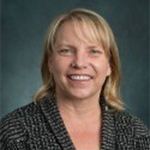
Provost’s N. Preston Davis Award for Instructional Innovation
Presented to an individual or group from among University faculty in recognition of the use of technology to further or significantly encourage instructional innovation; in recognition of more than four decades of service by N. Preston Davis.
School of Social Work: Accepting – Amy Martonis
